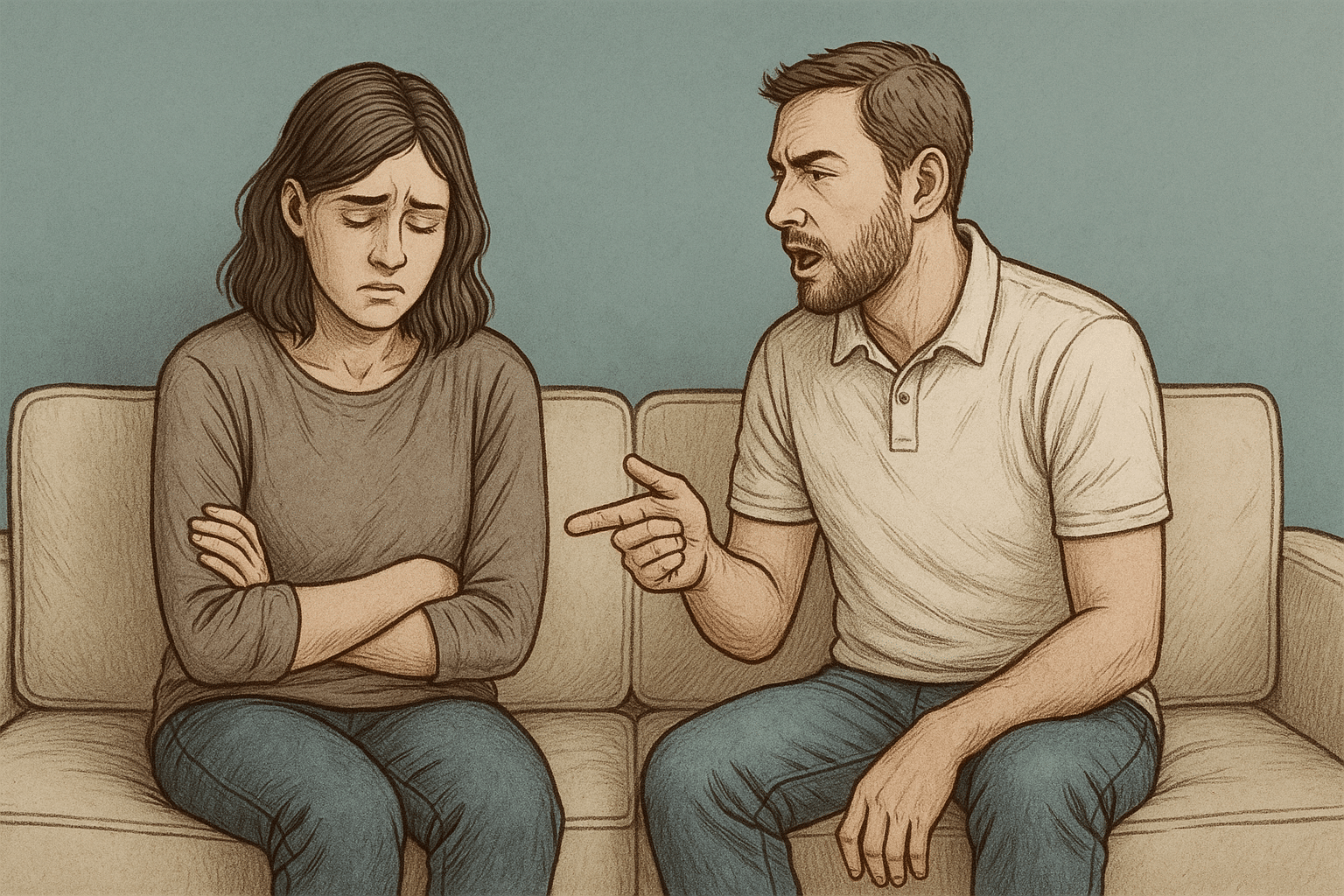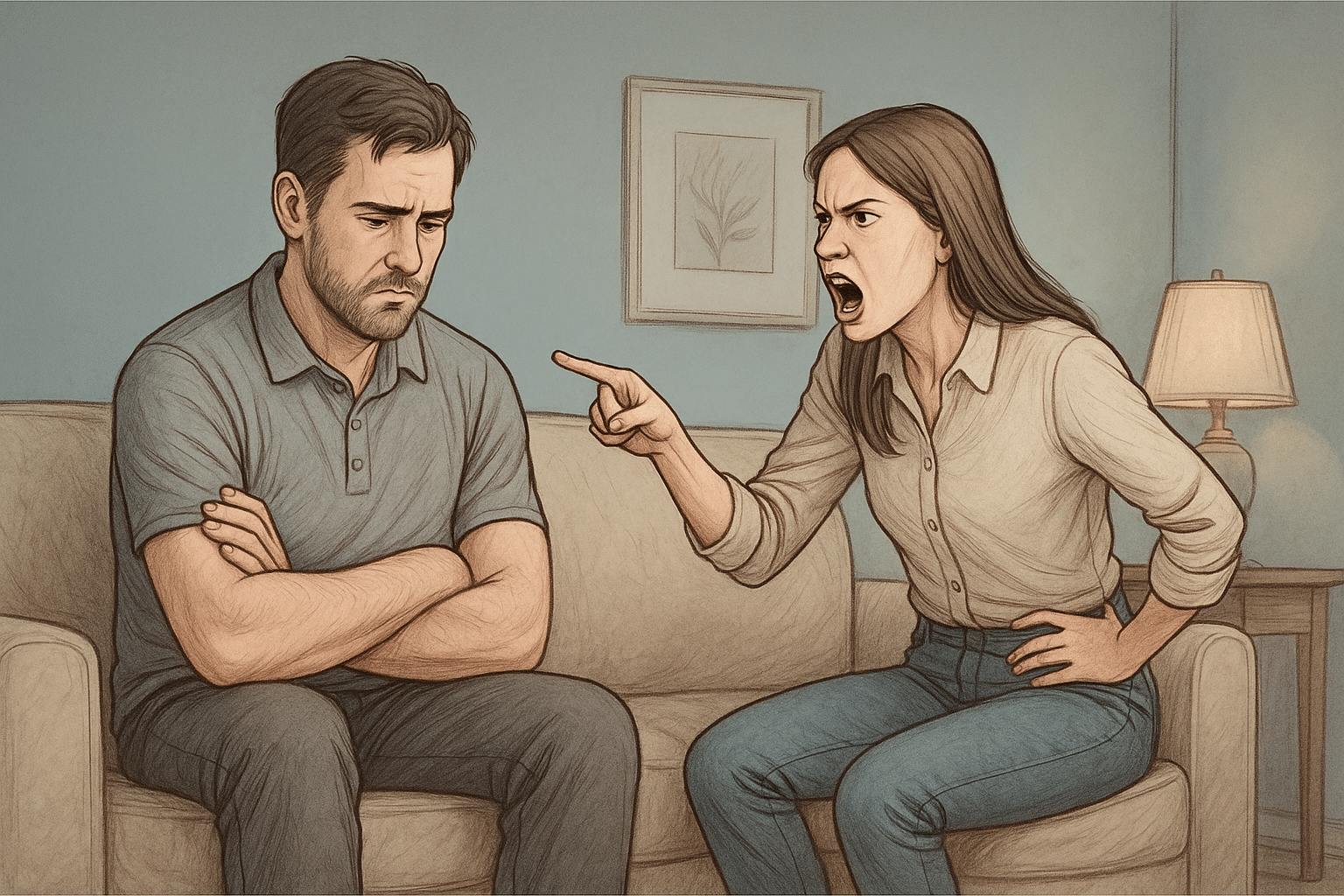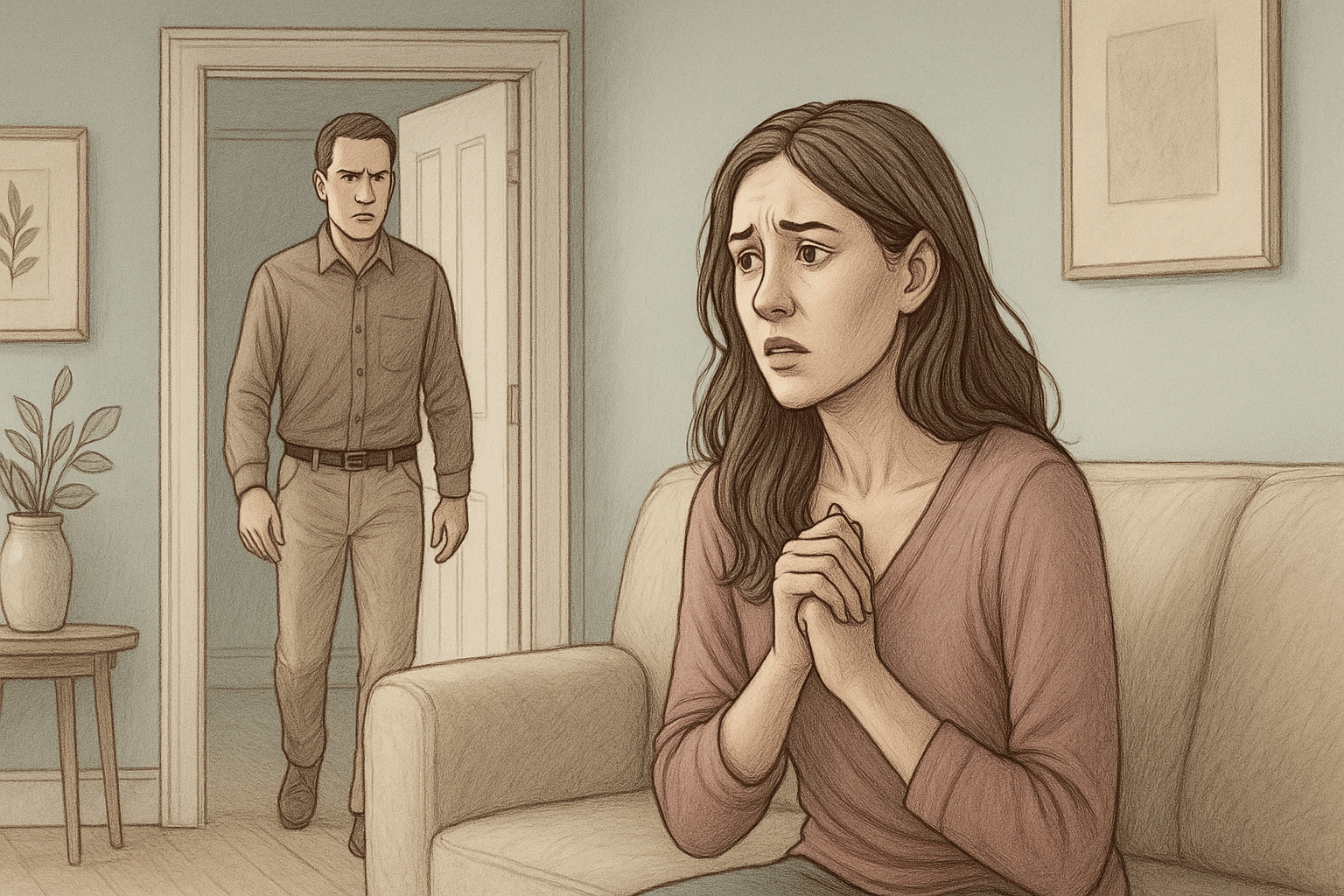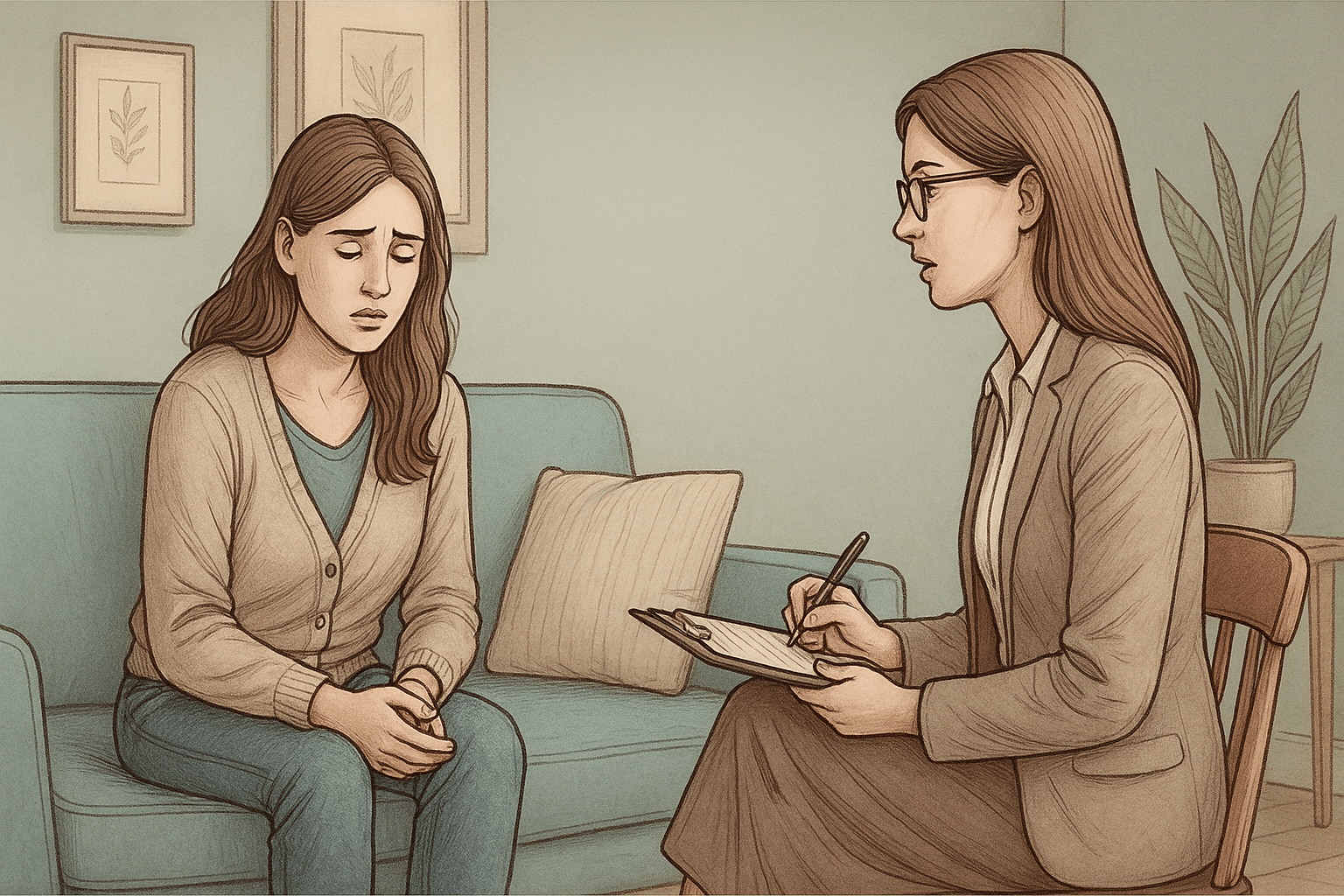
Key Takeaways
- Emotional abuse often goes undetected because it leaves no physical marks but can cause significant psychological damage that may affect your self-worth and mental health.
- Common signs of emotional abuse include constant criticism, gaslighting, isolation tactics, and controlling behaviors that gradually strip away your sense of self.
- Your emotional responses, like walking on eggshells, chronic anxiety, and persistent self-doubt, are valid warning signs that something is wrong in your relationship.
- Recovery from emotional abuse is possible through developing self-awareness, establishing boundaries, and seeking professional support from trained therapists who understand trauma.
- Mission Connection Healthcare provides specialized trauma-informed therapy for emotional abuse survivors. Our evidence-based approaches, including CBT, EMDR, and psychodynamic therapy, help clients process their experiences and rebuild their sense of self.
Silent Wounds: What Emotional Abuse Is
Emotional abuse is a systematic pattern of behaviors designed to control another person through fear, humiliation, manipulation, and isolation. It’s about power and dominance, not love. These behaviors chip away at your self-esteem, independence, and sense of reality over time, often so gradually that you might not notice how much you’ve changed to accommodate your partner’s demands and moods.
Defining The Invisible Pain
Unlike broken bones or bruises, emotional abuse leaves marks only its victims can feel. It involves non-physical behaviors that can include verbal assaults, intimidation, manipulation, humiliation, and the consistent dismissal of your thoughts and feelings.
These actions create a toxic atmosphere where you feel unworthy, unstable, and often responsible for the mistreatment you’re receiving. The real danger lies in how these behaviors become normalized within the relationship, making it difficult to identify them as abusive.
Why Victims Don’t Recognize It
Many individuals in emotionally abusive relationships are often confused about their relationship patterns, wondering if they’re simply “too sensitive” or if their expectations are unreasonable. This self-doubt is actually a symptom of the abuse itself.
Emotional abusers are skilled at making their victims question their own perceptions and feelings. They may use phrases like “you’re overreacting” or “that never happened” to make you doubt your own experiences.
Cultural messaging also plays a role. Many people grow up with unhealthy relationship models or societal narratives that normalize controlling behaviors as signs of love or protection. Without clear examples of healthy relationships, it becomes challenging to recognize when boundaries are being violated.
Additionally, emotional abuse often begins subtly and escalates gradually, making it difficult to identify the point at which caring behavior crossed into control.
Mission Connection offers flexible outpatient care for adults needing more than weekly therapy. Our in-person and telehealth programs include individual, group, and experiential therapy, along with psychiatric care and medication management.
We treat anxiety, depression, trauma, and bipolar disorder using evidence-based approaches like CBT, DBT, mindfulness, and trauma-focused therapies. Designed to fit into daily life, our services provide consistent support without requiring residential care.
Red Flag Behaviors of an Emotionally Abusive Partner
Constant Criticism

Your partner may criticize your appearance, intelligence, parenting skills, career choices, or even the way you perform basic tasks. These criticisms often include phrases like “you always” or “you never,” making sweeping generalizations that leave no room for nuance or growth.
What makes this particularly harmful is how it’s often disguised as “helping you improve” or “just being honest.” Over time, this constant stream of negativity erodes your confidence and can leave you feeling fundamentally flawed.
Control Tactics
Control in abusive relationships extends far beyond normal boundaries into micromanagement of your life. Your partner might dictate who you can see, what you can wear, how you spend money, or even what food you eat.
These restrictions are typically presented as concern (“Those friends are a bad influence”) or practical matters (“I’m better with money than you are”), but their true purpose is to limit your independence.
Gaslighting Techniques
Gaslighting is a particularly insidious form of emotional manipulation where your partner causes you to question your own memory, perception, and sanity. This might involve flatly denying things that definitely happened (“I never said that”), trivializing your emotions (“You’re too sensitive”), or even rearranging or hiding objects and claiming you’ve misplaced them.
The term comes from a 1944 film where a husband manipulates his wife into believing she’s going insane by subtly dimming their gaslights while insisting nothing has changed. This constant self-doubt is exhausting and makes it increasingly difficult to identify and respond to the abuse. When you’re constantly questioning your own reality, standing up for yourself becomes nearly impossible.
Isolation Strategies
Abusers systematically work to cut you off from friends, family, and other support networks. This isolation doesn’t happen overnight; it’s a gradual process that might begin with seemingly reasonable complaints about how much time you spend with others or subtle criticisms of the people you care about.
Over time, maintaining these relationships becomes so difficult or causes such conflict that many victims eventually withdraw to keep the peace. The resulting isolation removes potential witnesses to the abuse and reinforces the idea that the abuser is the only person who truly understands or cares about you.
Digital Control
Demanding access to your phone, monitoring your social media, reading your text messages without permission, and requiring immediate responses to their communications are common forms of digital control. Your partner might justify this behavior as “building trust” or claim that “people with nothing to hide don’t need privacy.” They may insist you share passwords or use tracking apps to monitor your location at all times.
This surveillance creates a state of constant accountability where your every movement and interaction is subject to scrutiny and potential punishment. Over time, many victims begin self-censoring their communications with others or avoid certain social interactions altogether to prevent conflict. The loss of privacy represents a fundamental boundary violation that undermines your autonomy and sense of security.
Your Feelings Are Warning Signs
While identifying specific abusive behaviors is important, your emotional responses to the relationship are equally valid indicators that something is wrong. Your body and mind often recognize danger before you can consciously name it. Pay close attention to these internal warning signals, as they can be the first step toward recognizing an unhealthy situation.
Walking On Eggshells
That constant feeling of tension of carefully monitoring your words, tone, and actions to avoid triggering your partner’s displeasure is a significant red flag.
This hypervigilance is both a response to unpredictable behavior and a survival mechanism. When you find yourself rehearsing simple conversations in your head, strategizing how to bring up routine matters, or feeling relief when your partner isn’t home, you’re experiencing the stress of walking on eggshells.
Self-Doubt Creep
Self-doubt in emotional abuse isn’t the occasional uncertainty we all experience. It’s a pervasive feeling that you can’t trust your own perceptions or make sound decisions. You might find yourself constantly seeking validation for basic choices or apologizing excessively for things that aren’t your fault.
This erosion of confidence stems directly from an abuser’s consistent messaging that your thoughts, feelings, and capabilities are inadequate.
Anxiety Spikes

You might experience physical symptoms like a racing heart, shallow breathing, or stomach distress when interacting with them or even just hearing their footsteps or the sound of their car in the driveway.
These reactions aren’t an overreaction—they’re your body’s wisdom trying to protect you. This contrast between how you feel alone versus in their presence speaks volumes about the health of your relationship.
Breaking Free Steps
Trust Your Gut
Your intuition is a powerful ally in recognizing emotional abuse. That persistent feeling that something isn’t right, even when you can’t precisely articulate what, deserves your attention.
Abusers work hard to convince you that your perceptions are wrong, but your emotional responses contain wisdom about your safety and well-being.
Document Everything
Creating a record of abusive incidents serves multiple purposes. It helps counter gaslighting by providing concrete evidence of what actually occurred. It can reveal patterns you might miss when considering isolated incidents.
And if you eventually need legal protection, documentation provides crucial support for your case.
Build a Support Network
Isolation increases vulnerability to abuse, so rebuilding connections is essential for breaking free.

If relationships have been damaged by the isolation tactics of your abuser, be patient with this process; simply explaining that you’ve been going through a difficult time and miss the connection can be a start.
Deciding to Leave
The decision to leave an emotionally abusive relationship is deeply personal and often the most challenging step. It requires tremendous courage because abusers typically escalate their tactics when they sense they’re losing control.
Create a safety plan that includes where you’ll go, what you’ll take, and who you’ll contact. Consider the timing carefully; leaving when the abuser is away reduces the immediate risk of confrontation.
Know that leaving doesn’t always mean physical departure; sometimes it means emotionally detaching and setting boundaries while planning your next steps. Your decision to prioritize your well-being is an act of self-preservation, not selfishness.
Healing After Abuse
Reclaiming Your Identity
Rediscovering who you are apart from your abuser’s definitions is a central task of recovery. This might involve reconnecting with interests and values you set aside during the relationship, exploring new activities that bring joy, or simply practicing making decisions without fear of criticism or consequences.
Give yourself permission to experiment and evolve. The goal isn’t to return to exactly who you were before the abuse but to integrate your experiences into a stronger, wiser sense of self.
Setting Boundaries
Setting boundaries begins with identifying your own needs, values, and limits, something that may feel unfamiliar after years of prioritizing someone else’s demands.
Start by noticing what activities and interactions make you feel energized versus depleted and respected versus diminished. Healthy people will respect your boundaries even if they don’t understand or agree with them.
Therapy Options

Different therapeutic approaches address various aspects of recovery. Trauma-focused therapies like EMDR (Eye Movement Desensitization and Reprocessing) help process specific traumatic experiences, while approaches like CBT (Cognitive Behavioral Therapy) address the negative thought patterns that often persist after abuse.
Group therapy offers unique benefits for abuse survivors, reducing isolation and providing validation from others with similar experiences. If you choose individual therapy, group support, or a combination of approaches, consistent professional guidance provides both emotional processing and practical skills for rebuilding your life.
Begin Your Healing Journey with Mission Connection’s Expert Care
At Mission Connection, we understand the complex trauma that emotional abuse creates and the courage it takes to acknowledge these painful patterns.
Our specialized team provides trauma-informed care specifically designed for emotional abuse survivors, combining evidence-based therapies like CBT, EMDR, and psychodynamic approaches to address both the immediate crisis and long-term healing needs.

What sets Mission Connection apart is our deep understanding that emotional abuse recovery isn’t just about leaving a relationship, it’s rebuilding your entire sense of self, and we offer both individual and group therapy options to help you do this.
Your journey toward emotional freedom begins with a single step. Contact Mission Connection today to learn how our compassionate, expert care can help you heal from emotional abuse and create the fulfilling life you deserve.
Call Today 866-833-1822.
Frequently Asked Questions
Can emotional abuse turn physical?
While not all emotional abusers become physically violent, emotional abuse often precedes and accompanies physical abuse. Research shows that psychological aggression is the strongest predictor of future physical aggression in relationships.
Can emotional abusers change?
Meaningful change is possible but requires the abuser to fully acknowledge their behavior without minimization, take complete responsibility without blaming the victim, and commit to long-term specialized treatment. This level of accountability is unfortunately rare, as emotional abuse stems from deeply ingrained thought patterns and often provides benefits the abuser is reluctant to relinquish.
Is emotional abuse a crime?
Legal responses to emotional abuse vary widely by jurisdiction. While some locations have begun recognizing psychological abuse through coercive control laws, many still lack specific legal protections against emotional abuse alone. However, certain behaviors within emotional abuse may qualify for legal intervention through harassment laws, stalking statutes, or as elements in domestic violence protective orders.
How does Mission Connection help survivors of emotional abuse recover?
Mission Connection offers specialized trauma-informed therapy designed specifically for emotional abuse survivors. Our evidence-based approaches include CBT to address distorted thought patterns, EMDR for processing traumatic experiences, and psychodynamic therapy to understand relationship patterns.
We provide both individual and group therapy options in a safe environment where clients can rebuild their sense of self, develop healthy boundaries, and learn to trust their own perceptions again.


